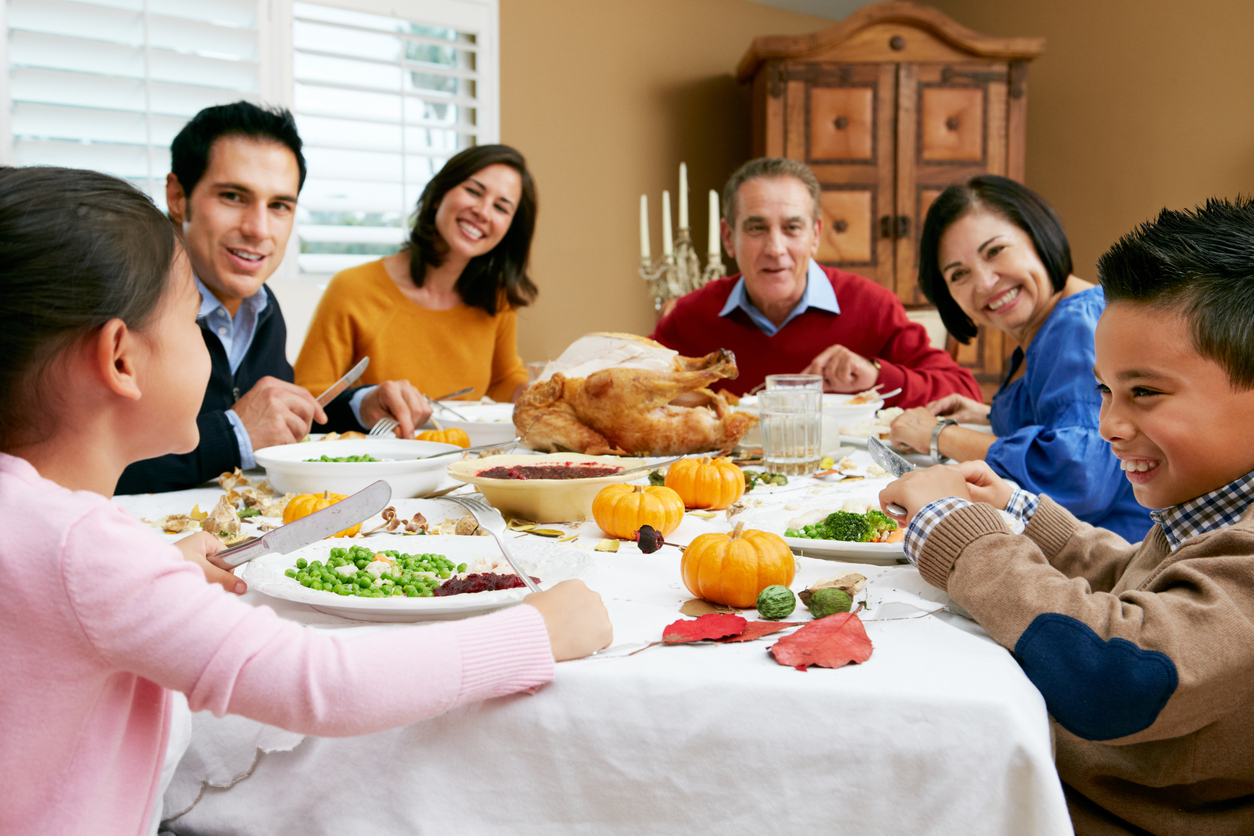
Holidays are a time for togetherness, but if you have a child with food allergies it can sometimes be hard to relax. Here are some tips and stories from our members.
1. Plan ahead. If you are going to a relative’s home, talk to them in advance about your child’s allergies. Discuss the menu, safe food preparation and (if your child has asthma) any triggers in the home such as pets or woodsmoke. Talk to your child too, about what to expect and how they can manage their allergies. Also, make sure your child’s epinephrine auto-injectors are up to date.
Kristen from North York, Ontario, has two daughters under age 4 with multiple food allergies including milk, eggs and peanut. “We offer to bring a dish with us that is safe for our kids and that can be put out for everyone. I know that those who are hosting are going to do their best to include us, it isn’t easy for everyone to do that. I normally bring most or all the foods for my kids to eat.”
Kristen always includes a special dessert for her daughters. “Usually they pick that out, as it is something real special for them to look forward to, too.”
2. Be a host. Sometimes it’s preferable to be the host, especially for a large gathering. Although it can take a lot of work to host, there are some ways to make it easier.
“We try to prepare the food in advance as much as possible since we end up preparing most foods from scratch,” says Kristin. “I cut up all the ingredients ahead of time and put them in the freezer so they are ready to go and it makes it a little easier for the day of the party.”
Communicate clearly with guests in advance. If you want to make all the food, suggest that guests bring drinks instead. If guests are bringing food and you have house rules (such as no nuts), let them know in advance so there are no surprises.
3. Have a strategy for the day. Talk to your child about managing their allergies, what the meal plan is and how to say “no”politely, if they need to. Many parents of toddlers and preschoolers take turns watching the child in shifts, so that responsibilities are clear (and each parent gets a break). If you have a young child who needs watchful guidance, you can make it more fun by creating games and contests for your child and the other children.
Things can get messy at parties, especially in a big group with lots of small children. Hand washing is one of the most effective ways to prevent cross-contamination from hands to mouth or eyes. Amy, a Toronto mom says, “Part of my plan is reminding people to wash their hands after eating, and making sure that my son washes his hands before he eats. It’s a simple thing to do and it goes a long way.”
If a family tradition is not allergy-friendly, work with your family to find the best solution. “Our family has a huge family gathering at a restaurant where we can’t go due to the allergies,” says Kristin, whose toddler has a milk allergy. “So my mom hosts a get together at her place with tea/coffee so that we can still see everyone and they can still see us too. We do our best to make it work and to keep our kids included in every way possible.”
4. Review your emergency plan. Now is a great time to review your emergency plan, and read Food Allergy Canada’s information on signs and symptoms of anaphylaxis and what to do in an emergency.
Also, remind your child that he or she won’t be “in trouble” with you if there is an accident, and that they should let you and others know if they are feeling unwell or are concerned they may be having a reaction.
5. Empower your child. “Lessons learned early are lessons learned for life, “ says Marilyn Allen, a food allergy consultant. You can help prepare your child ahead of time by practicing how to ask questions about ingredients and menu items. Encourage them to speak for themselves — and praise them for being thoughtful and managing their food allergies. Marilyn suggests developing a script and list of questions together with your child, and developing a written list of allergens.
Kristin and her husband believe in teaching their daughters about allergy safety as early as possible. Their oldest, Ada is three and a half. “If someone were to offer Ada food, she knows to ask her mom and dad if it is safe with her food allergies,” notes Kristen. “For Mira [18 months old], it is a different story and we just have to watch her really close. Luckily, older sister helps with watching her younger sister.”
Managing food allergies is often a team effort for the whole family. Take a moment to recognize the efforts of your team – your child, siblings and yourself, in making the holidays happy and relaxed for all of you.
Tags: children, family, Holidays, parties, thanksgiving